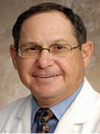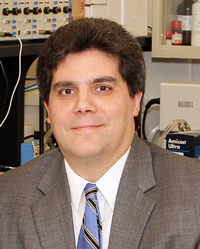By Dr. J. Marc Shabot and Dr. G. Nicolas Verne
 |
 |
| Dr. J. Marc Shabot |
Dr. G. Nicolas Verne |
Colon cancer is the #2 cancer killer in the United States but with early detection and removal of precancerous polyps chances of survival exceed 80-90 percent.
Complete colonoscopy is the gold standard in colon cancer prevention. This exam allows us to look directly at the entire colon and to identify any polyps or growths. Colonoscopy is the only test that allows a biopsy or complete removal of polyps during your procedure.
To go from a normal bowel to cancer takes anywhere from five to ten years or more. Thus, we have a period of time, a window of opportunity, to identify at colonoscopy the precursor lesion and remove it. Starting at age 50, individuals should get screened every 10 years. People with a family history of polyps or colon cancer in first-degree relatives should begin regular checkups at age 40 or under. A good rule of thumb is to start screenings 10 years before the age at which relatives were diagnosed.
Former Galveston Mayor Jan Coggeshall and her two brothers suffered firsthand the devastating consequences of colon cancer. Their mother died in 1976 of the disease. Aware that all three of them are high-risk patients and knowing that prevention is the key to avoid getting sick, they schedule a colonoscopy every five years.
“Colonoscopy was not available when my mother had colon cancer,” Coggeshall said. “Now we’re lucky that we’ve got the technology. Go and get the screening and make it part of your routine.”
Though the oral bowel preparation to clean out your system the day before your exam is not pleasant, it is necessary so that you have a high quality examination. This is a small price to pay for an examination that could prevent you from developing colon cancer and dying a premature, unnecessary death with suffering by you and your loved ones.
In 2011, the UTMB Gastroenterology Division performed 3216 colonoscopies. We will be pleased to help you with your colon cancer screening. You may wish to see your primary care physician with questions about colon cancer screening, or you may contact us at (409) 772-4798, or in Friendswood at (281) 993-3927. Remember, to the world you may be one person, but to one person you may be the world.